From production to pottery: Wabi Sabi founder shares the joys of taking it slow
In this fast-paced digital era, the traditional art of pottery is not something you would expect to really take off.
But there’s been a revival of all things old-school and handcrafted, and molding clay into mugs and bowls seems to be one of the new “it” hobbies among celebrities and personalities.
Since they opened in 2020, the local pottery studio Wabi Sabi in San Juan City has seen the likes of celebrities Maine Mendoza, Kathryn Bernardo, Marian Rivera and daughter Zia giving it a shot at the potter’s wheel.
She’s also done workshops for vlogger Mimiyuuuh, beauty queen Rachel Peters, model Lauren Reid, TV personality Heaven Peralejo and YouTuber Hannah Pangilinan, to name a few.
But what is it about pottery and the concept of Wabi Sabi that’s attracted clients?
“Wabi-sabi, the word itself, is a Japanese philosophy that is centered on the appreciation of the beauty of imperfection and the fleeting beauty of nature,” explained Javier.
“It’s something that really correlates with pottery. With pottery, everything is handmade, and with ceramics, even though it’s not that perfect, that just makes it all the more beautiful and raw, so you really see the human touch,” she added.
From film production to pottery
The former film producer shared that it was the concept of embracing imperfections that saved her when her world was turned upside down during the pandemic.
Javier shared her leap from the fast-paced world of production to pottery during a “Press Play” hands-on workshop organized by insurance brand FWD attended by PhilSTAR L!fe along with other members of the press on Aug. 30.
After working in an advertising company for over 12 years, being constantly on the move for shoots and meetings, and working on huge projects with high-profile clients, Pau was forced to slow down due to lockdown restrictions.
During that time, she came to the realization that the world could end any time, and so far, she had only devoted her life to work. She experimented with different hobbies to deal with the work-from-home restrictions. After attending online workshops, she found pottery and fell in love with it.
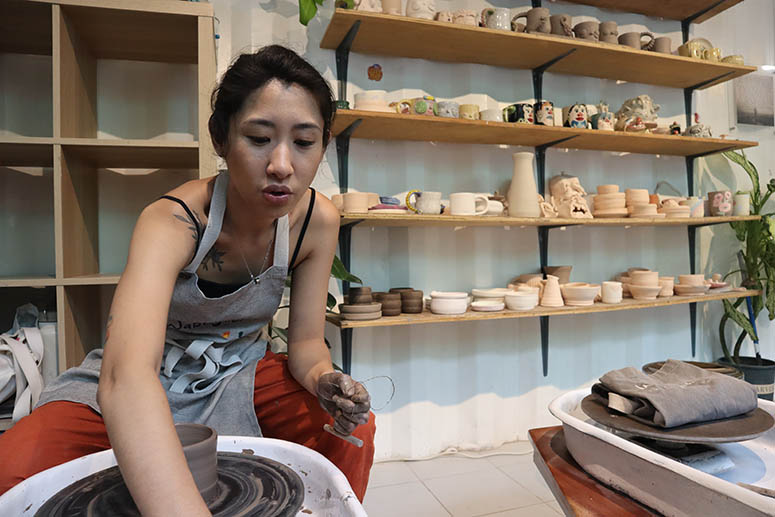
“When I was working as a producer, I was really burned out, so I was always looking for something else to do. Pottery to me was really a break. Instead of a huge pile of lists that I had to do in my head, it was a form of forced meditation. Because in those few minutes, all that matters is you and that piece of clay that’s right in front of you,” Javier said.
She launched the pottery studio during the height of the pandemic in 2020, initially as a creative space to focus on her mental well-being.
When she first decided to put up the studio, she said people thought she was crazy because she had shifted to something that was totally different from her field of expertise.
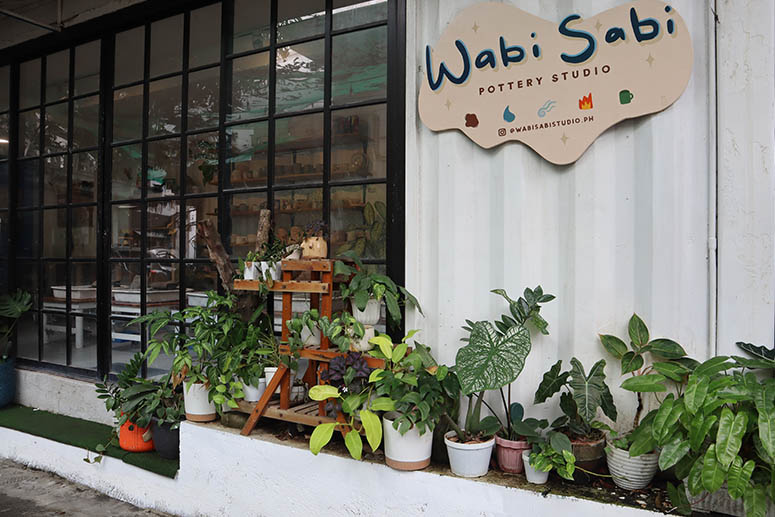
But in just two years, the hobby has become a thriving business, with clay therapy pottery workshop sessions and handcrafted ceramic ware gaining popularity among celebrities and working professionals looking for a respite from workdays.
“I lived a very busy life. Now I really dedicate my life to creating and I’ve been so lucky because somehow it worked and people relate to it,” she said.
The pottery experience
To appreciate the craft better, we got to experience pottery for ourselves at Wabi Sabi Studio. The cozy container van studio decorated with plants is tucked in a nook in a residential area right across a small restaurant, barber shop, and local craft beer spot.
It’s an intimate space, ideal for one or two students at a time, with four or five persons sitting next to each other at a time being a tight squeeze. A collection of handcrafted and hand-painted ceramics from artist friends, including Jill Arteche and Egg Fiasco, decorate the main shelf.
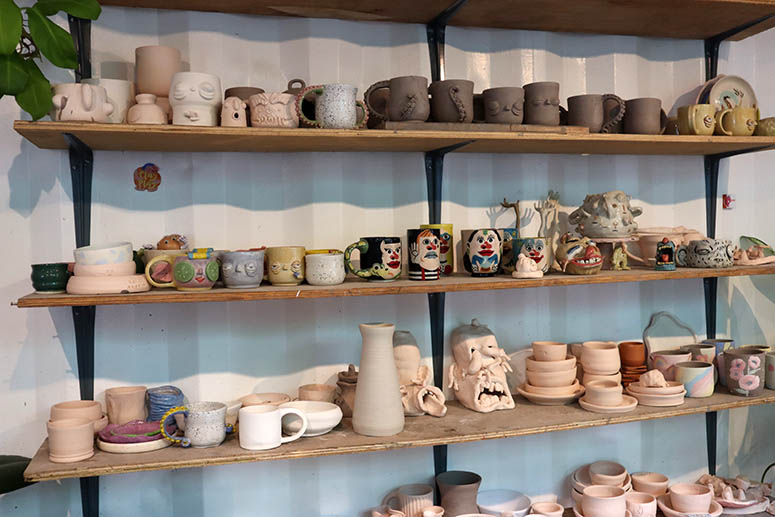
The full pottery course normally takes three days. During that afternoon crash course, we were given an abridged version of the first 3-hour introductory course and jumped right into wheel throwing, which involves shaping and forming clay into usable shapes on the pottery wheel, with lumps of clay prepared beforehand.
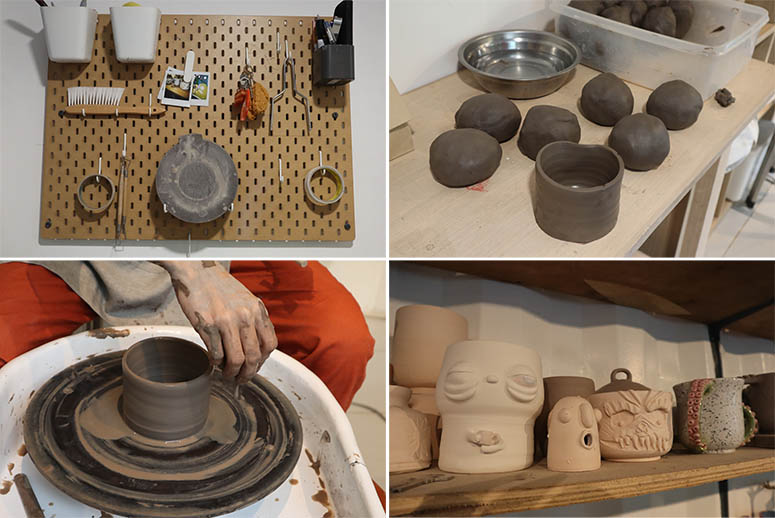
First, one must center the lump of clay on the wheel. Then, you get to operate the wheel with a foot pedal to control the spinning. You will need both your hands to mold the clay with water to come up with the proper shapes and use your body weight to press down on the clay. For beginners, the most basic shapes you can create are mugs, plates, and bowls.
“Medyo challenging siya at first. Learning to throw on the wheel is like learning how to ride a bike. It has a learning curve. You need patience; don’t stress yourselves. Breathe. And have fun with it,” Javier told us as we got our hands dirty.
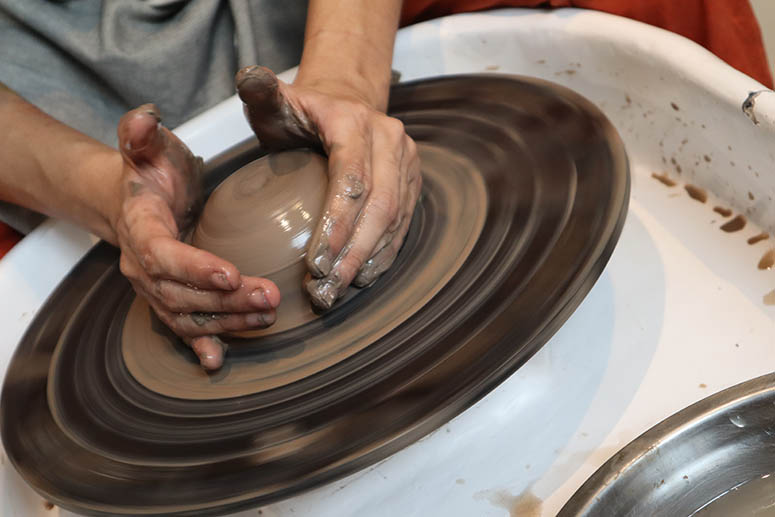
I personally never knew that pottery could be a meditative experience. There’s something relaxing about the primal feel of mud and water being shaped beneath your hands and seeing a lump of clay transform.
At first glance, it seems like a simple task, but the process of creating something out of nothing can feel immensely satisfying. For those who find themselves constantly rushing to do things, pottery is a naturally slow process that gives participants a chance to slow down and appreciate the process of creating.
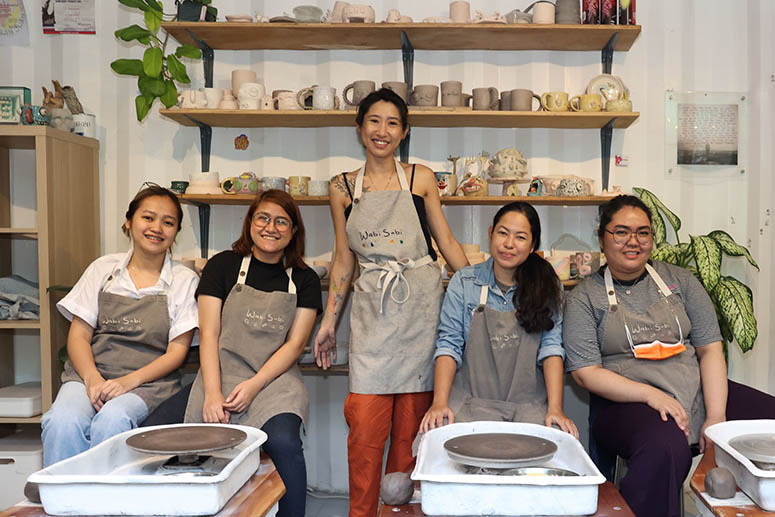
As cliche as it sounds, the pottery session made me feel like a kid again. It brought me back to the simple days of playing with mud in our backyard with friends. You really don’t mind if what you make comes out messy or imperfect, but you enjoy the tactile experience and get to clear your head for a while before having to deal with the real world of adulting and responsibilities.
After an hour or so of molding clay, our group eventually came up with pieces ready for the next stages of drying, firing, and glazing, which can take up to a month due to the volume of ceramics the studio has yet to process.
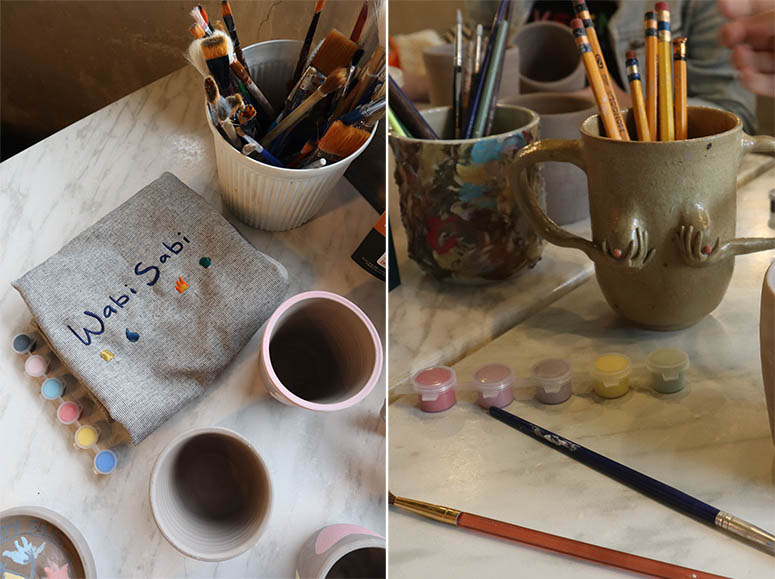
The second part of the workshop involved painting and decorating hardened ceramic pieces. We were told to unleash our creativity and paint whatever we wanted. Again, these ceramic items need to undergo firing and glazing before we eventually get to take them home.
Bringing pottery to the modern times
In just two years, Wabi Sabi pottery studio has managed to expand and plans are in place to relocate to a bigger space in 2023 to accommodate more clients.
Javier credits the timing, better appreciation for handcrafted materials, and the fact that people are looking for something new and different to do, as part of the resurgence of pottery in the country.
While pottery hasn’t really been that popular in the past and was considered sort of a "dying craft," Javier said they experimented, bent a lot of rules, and tried to unlearn the traditional way of doing things.
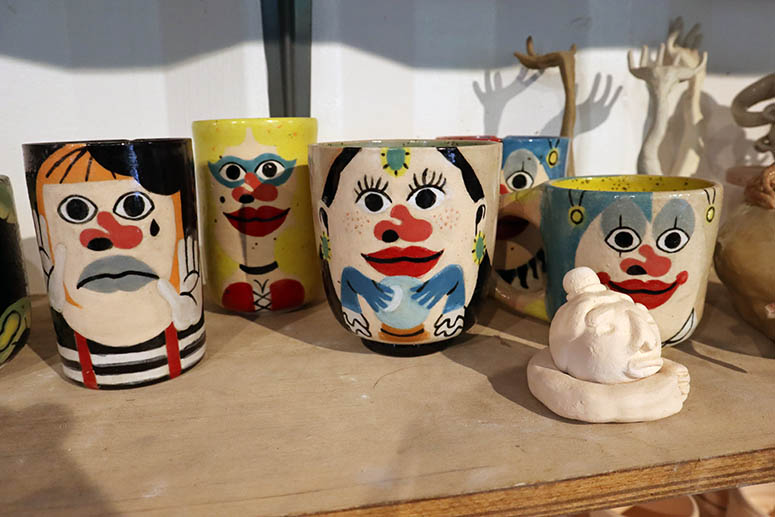
“With Wabi Sabi, what we’d like to do is bring pottery to the modern taste, because that’s how you keep crafts alive. You keep bending rules and try a lot of different things. It’s really more about exploring,” she shared.
Part of their success is also about making the activity more accessible to the public through their virtual workshops in the past two years and current hands-on workshops and sessions that anyone can book online.
“Pottery can be a really intimidating craft. When you think of pottery, you wouldn’t know where to do it, how to do it. So we try to make it more friendly, more accessible, and most importantly, more fun,” she added.
Want to get your hands dirty and embrace the art of imperfection? Check out Wabi Sabi Studio’s website and Instagram page for full rates of workshops and to book sessions. Walk-ins are not allowed and all workshops must be pre-booked in advance.


